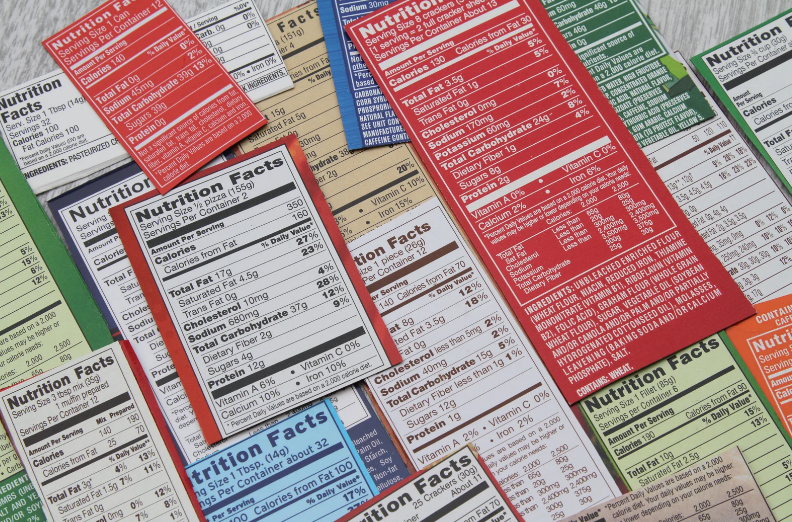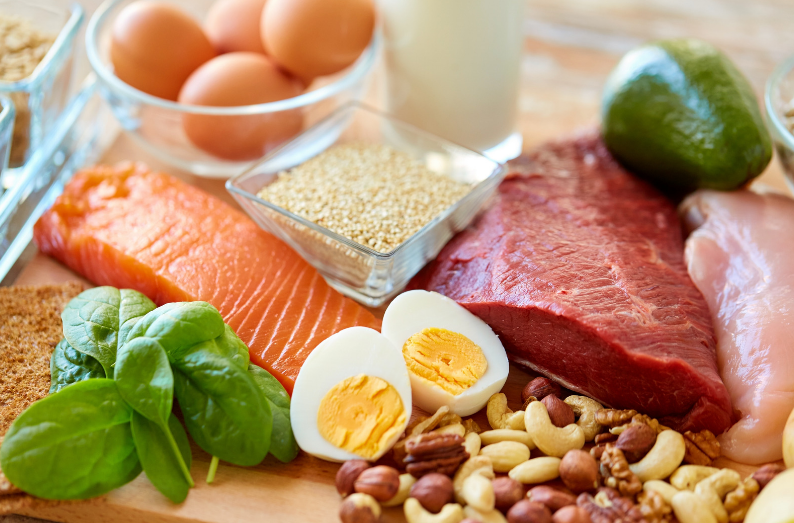Achooo! Is it a cold? The flu? You may not know exactly what you have, but you know you feel unwell.
During sick days, you should not worry about weighing or measuring your foods, counting calories, tracking food, or worrying about your metabolism. In fact, sickness, fever, and infections increase your metabolism by about 7 percent for each degree the body temperature rises above 98.6 degrees Fahrenheit. When you're ill, focus on getting adequate rest and self-care to support a speedy recovery. Follow these guidelines according to your symptoms, and you’ll be back to feeling your best in no time!
Note: These guidelines are for adults. If your child exhibits these symptoms, contact their pediatrician.
The Common Cold
If your symptoms include a runny nose, sneezing, nasal congestion, sore throat, cough, and/or mild fatigue, you may have a common cold, which is caused by a virus and is usually mild.
Care for yourself by:
-
Gently blowing your nose as needed.
-
Inhaling steam to help loosen mucus.
-
Taking a warm shower or sitting in the bathroom with the shower running.
-
Drinking plenty of liquids to stay hydrated, including warm fluids like chicken noodle soup to ease congestion.
-
Increase your sleep and rest.
-
Consult with your healthcare provider regarding over-the-counter cold medications.
When choosing foods and liquids: Start with “Stage 1” options (see chart below), then gradually progress to “Stage 2” as tolerated.
Seek medical attention if:
-
Nasal congestion persists for more than one to two weeks.
-
Symptoms do not improve within 10 days.
-
You experience difficulty breathing, faintness, severe sore throat, green or yellow mucus, facial pain, or changes in alertness.
-
You have a chronic medical condition, such as diabetes, affected by changes in food intake.
Nausea, Vomiting, or Stomach Upset
If your symptoms include nausea, vomiting, abdominal cramping, bloating, or fever lasting a few hours to a few days, you may have a viral infection. Vomiting may also result from food reactions, medications, pregnancy, or other underlying conditions.
Care for yourself by:
-
Staying as comfortable as possible.
-
Preventing dehydration by drinking 8–12 cups of liquids.
-
Avoid food or drink for a few hours until your stomach settles.
-
Steering clear of dairy, fatty, greasy, fried, or highly seasoned foods for a few days.
-
Avoiding caffeine, alcohol, and nicotine until you feel better.
Food guidance: Start with small sips of “Stage 1” liquids for no more than 24 hours. Then slowly add “Stage 2” foods, like low-fiber carbohydrates and low-fat protein, as tolerated. Return to Stage 1 if vomiting recurs.
Seek medical attention if:
-
You cannot drink anything for 24 hours.
-
Vomiting lasts more than 2–3 days.
-
Signs of dehydration occur: excessive thirst, dry mouth, little or no urination, severe weakness, dizziness, or lightheadedness.
-
You vomit blood.
-
You have a chronic medical condition affected by food intake.
Diarrhea
If your symptoms include diarrhea (loose or watery stools) and abdominal cramping, you may have a mild viral infection. Nausea and vomiting may precede diarrhea along with low-grade fever, muscle aches, and headache. Diarrhea may also result from bacteria, parasites, medications, or artificial sweeteners like sorbitol or mannitol.
Care for yourself by:
-
Choosing whether to use over-the-counter medications like Imodium, Pepto-Bismol, or Kaopectate, which may slow diarrhea but won’t speed recovery.
-
Preventing dehydration by drinking 8–12 cups of clear liquids daily.
-
Avoiding dairy, fatty, greasy, fried, or highly seasoned foods for a few days.
-
Avoiding caffeine, alcohol, and nicotine until you feel better.
Food guidance: Begin with Stage 1 liquids, then gradually add Stage 2 foods, like low-fiber carbohydrates and low-fat protein, as tolerated. Advance further as bowel movements normalize.
Seek medical attention if:
-
Diarrhea lasts longer than one week.
-
Signs of dehydration occur.
-
You experience severe abdominal or rectal pain, bloody stools, fever above 101°F, or ongoing dehydration despite fluid intake.
-
You have a chronic medical condition affected by food intake.
Suggested Food Intake for Sick Days
Stage 1:
-
Broth (chicken, beef, vegetable)
-
Clear, commercial drinks
-
Fruit ices or juices
-
Lemonade, tea (without milk/cream)
-
Hard candy, honey, popsicles (with sugar)
-
Decaf coffee
Stage 2:
-
All Stage 1 foods
-
Bread, bagels, rolls, tortillas
-
Cheese and other aged dairy products
-
Low-fat, low-fiber cereals and crackers
-
Eggs
-
Fruits without skin (raw, canned, frozen)
-
Lean meats (unseasoned)
-
Muffins (low-fat, low-fiber)
-
Noodles, pasta, rice
-
Soup (chicken, beef, vegetable)
-
Tofu and soy-based products
-
Tomato soup (made with water)
-
Vegetables without skin (raw, canned, frozen)
-
Yogurt and other fermented dairy products













